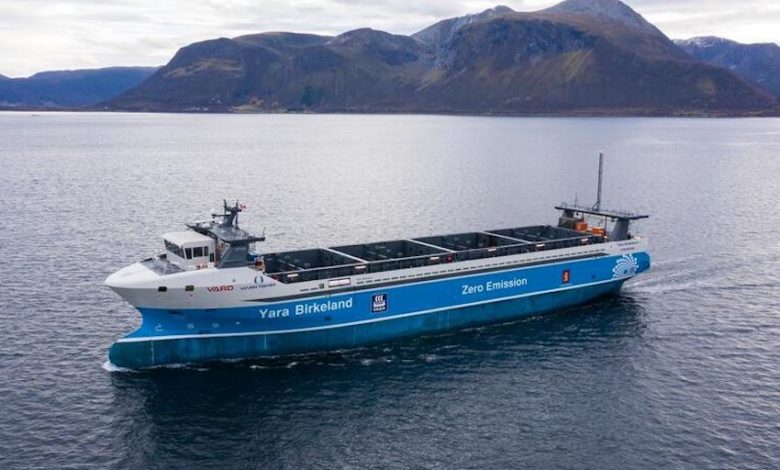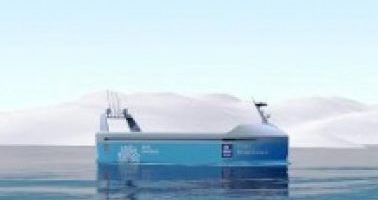The Vard division of Fincantieri has delivered the zero-emission container ship Yara Birkeland to its owner, the fertilizer manufacturer Yara International. The 120 TEU Yara Birkeland is the world's first battery-electric container feeder for commercial use, and the ultimate goal of the project partners is to operate it as an autonomous vessel.

The hull was built by the Braila de Vard shipyard in Romania, and initially its equipment and delivery were scheduled to be completed at Vard Brevik. The work was subsequently moved to Vard Brattvaag and the expected delivery for the second quarter was delayed due to the COVID-19 pandemic. Now that it has been delivered, it will undergo further testing and development of an autonomous system in a designated area near Horten, Norway.
After experiencing delays due to Covid-19, the world's first autonomous battery-powered spacecraft is expected to go into operation by the end of 2021. For the first phase of the project, a removable bridge with maneuvering and navigation equipment has been installed. In the future, when the spacecraft is ready to operate autonomously, this module will be lifted.
In the commercial rollout, the ship will transport fertilizers from Yara's fertilizer plant in Porsgrunn to the offshore ports of Larvik and Brevik, a journey of some 30 nautical miles. According to Yara and project partner Kongsberg, the ship's operations will reduce NOx and CO2 emissions by reducing the transport of diesel-powered trucks by some 40,000 trips a year. This will reduce road congestion as well as the environmental footprint of the operation.
"The Yara Birkeland is an example of Yara's ambition to innovate and find climate-friendly solutions that can be commercialized. However, innovation projects come with uncertainties and challenges. In particular, autonomous ground logistics which has proven to be a challenge for the project. The construction of the ship has been done as planned with slight delays, including the installation of the battery and the control and navigation systems. For autonomous logistics on land, the project team continues to look for simplified solutions to it".
Yara

